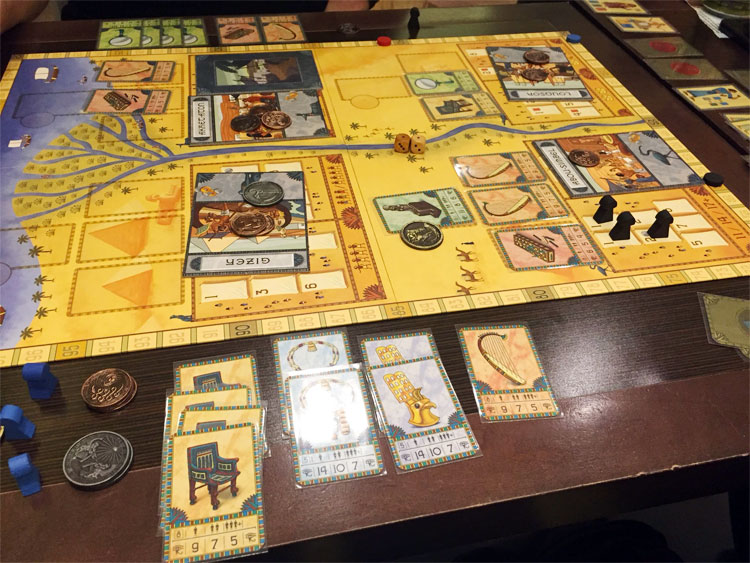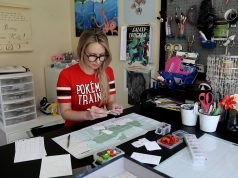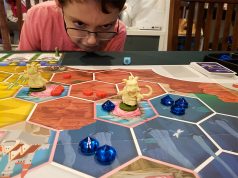Here at the Board Game Quest bunker/headquarters/nail salon, we’re hard at work endlessly discussing games. We take them apart. We beat them ‘til they bleed. And we even dissect the entrails to find what makes good games breathe. With this article series, I’ll be tackling a certain game mechanism genre every so often to get right to why some games work and others don’t.
 So… auction games. There are some very basic elements that make a good auction game. This really isn’t obtuse or difficult to see. Most of what any gamer needs to see about good auction games comes from a trilogy of games from way back in 1999: Modern Art, Medici, and Ra. However, other games have brought in solid concepts as well.
So… auction games. There are some very basic elements that make a good auction game. This really isn’t obtuse or difficult to see. Most of what any gamer needs to see about good auction games comes from a trilogy of games from way back in 1999: Modern Art, Medici, and Ra. However, other games have brought in solid concepts as well.
The first element that makes an auction mechanism engaging is that the potential value of the auctioned item(s) must be calculable, but also potentially malleable. The auctions in Power Grid for power plants, as an example, work well because the value of the resources that power them can fluctuate based on what other players buy. This means the inherent cost of ownership of the power plants changes. In Medici and Ra, this can also be seen because the value of each good is determined mainly by whether a person is a leader in having that good.
The second element that makes an auction game good is that the structure for the auctions varies. The two games that stand out in this regard are Modern Art and Nefertiti. In both cases the structure of the auction changes from moment to moment. The auctions can be one of a simple once-around-the-table or random in their closure, such as in some instances in Nefertiti. If the auction is the same every single moment, that’s not as exciting as when players must also factor in how they need to bid with each turn.
The third element to a good auction game is the addition of zero or negative value items. Ra does this particularly well. Some items in an auction set can actually reduce your score. Other games may include items which are of zero value, but with a game that offers limited actions, successfully acquiring items with no value to yourself costs you an action, lessening chance to win unless trading is an option. One game which pairs this with some negotiation is Colosseum. Players can bid on items that are of zero value to themselves, but could be very valuable to another player who is out of the auction.
Once you know that these elements will create exciting auctions, any time you’re curious as to whether a game offers bang for the buck, the main step is to read the rules to see how the auctions work. Often this will give a great guide to seeing if a game is right for your group or if it has the right kind of tension. By taking this approach, you’ll be better prepared to yell out “Sold!”






















Amun Re is my favorite auction game. I enjoy that the auction is not a back and forth by little amounts, but if you are out bid, then you have to then bid on something else. So you need to think about how much a property is worth to others and how much you would pay for it, because you are not guaranteed a second chance.
I also enjoy that the bidding increases by set amounts, it makes for very challenging decisions but can be more manageable for new players and moves faster.